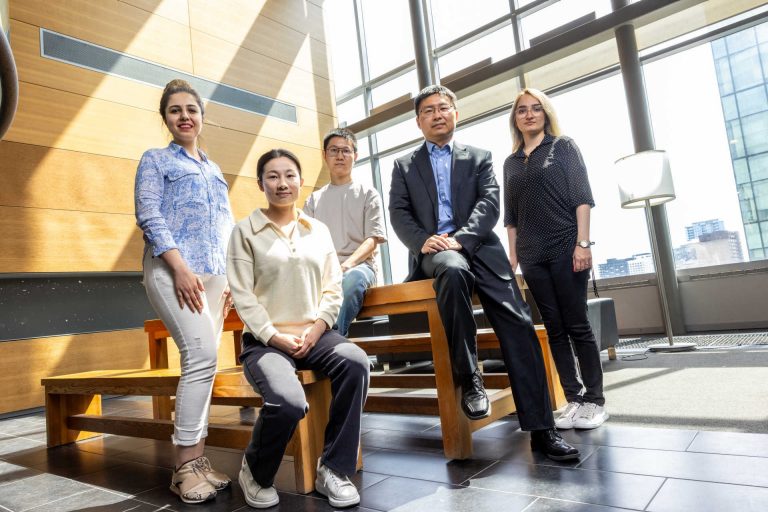Gina Cody School secures $1.58M from Natural Resources Canada to explore oil-spill response and low-toxicity cleaning agents

As one of the world’s largest oil producers, Canada faces environmental challenges in managing spills. To address these challenges, Natural Resources Canada has awarded $1,581,000 to Concordia’s Gina Cody School of Engineering and Computer Science for two research projects under its Multi-Partner Research Initiative (MPRI).
Set to run from 2023 to 2027, the projects respectively aim to enhance oil-spill response and develop low-toxicity surface washing agents for shoreline cleanup.
Chunjiang An, the principal investigator leading the projects, will be supported by co-principal investigators from the Department of Building, Civil and Environmental Engineering: Zhi Chen, Catherine Mulligan, Samuel Li, Maria Elektorowicz and Biao Li.
“Oil-spill response is critical for protecting our coastlines and ecosystems,” says An, an associate professor who also holds the Concordia University Research Chair in Spill Response and Remediation.
“Our research will provide innovative solutions to reduce the environmental impact of oil spills and improve response strategies. These projects will further strengthen Concordia’s research capacity in oil-spill studies and enhance its position as a national and international centre of excellence in this field.”
Collaborative research with global and local partners
Both projects are the result of collaboration among multiple institutions and organizations, within Canada (Memorial University, McGill University, the University of Northern British Columbia, SL Ross Environmental Research Ltd.), the United States (New Jersey Institute of Technology, Owens Coastal Consultants, Polaris Applied Sciences) and Norway (SINTEF), and with Indigenous communities in British Columbia (Snuneymuxw First Nation and Simpcw First Nation).
The projects will also involve and train more than 15 highly qualified personnel, further strengthening Concordia’s research capacity in oil spill studies.
“These projects exemplify our commitment to working with diverse partners, including other universities and Indigenous communities, to address critical environmental challenges,” says Emad Shihab, the Gina Cody School’s associate dean of research and innovation.
“By training highly qualified personnel, we are not only advancing research but also nurturing the next generation of experts in environmental engineering.”
Researching oil spills and innovative cleanup techniques
The first project, titled “Enhanced Understanding of the Fate and Behaviour of Oil for Improving Spill Response in Canadian Estuarine Shorelines,” has been awarded $1,031,000. This project will focus on understanding the transport, behaviour and fate of spilled oil in estuarine environments, which are particularly challenging due to their dynamic nature influenced by wind, tides and waves.
The research aims to develop a comprehensive framework for oil-spill response, integrating oil behaviour simulation, vulnerability identification, response technique development and decision support. This work will provide essential information for decision-making by the response community to ensure selection and use of the most effective response options available.
The second project, “Development and Evaluation of Improved Low-Toxicity Surface Washing Agents for Shoreline Spill Response,” has been granted $550,000. This research will focus on creating environmentally friendly surface-washing agents to enhance the removal of stranded oil from coastal surfaces.
The aim is to develop agents that are effective in oil removal while minimizing additional environmental impacts.
An’s leadership in these projects builds on his previous success with the MPRI, where he led projects funded by Fisheries and Oceans Canada from 2018 to 2022, securing more than $5 million. These projects produced numerous papers, including a publication in the Chemical Engineering Journal, which reviewed the advancements and challenges in using surface-washing agents for treating oiled shorelines.
This study provided insights for future research and practical applications in oil-spill response.
Learn more about Concordia’s Department of Building, Civil and Environmental Engineering.


